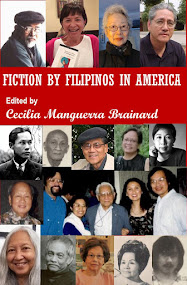CATALUNYA INDEPENDENCE CRISIS PART 4: CLEANING UP THE MESS
By Manny Gonzalez, founder of Plantation Bay Resort & Spa and now part-time foreign correspondent
Last week I reported on the Catalan independence crisis, and made these suggestions:
If the Catalan leaders persist, the national government will take control of Catalunya. If it comes to that point, the national government has to do it right, with firmness against the ringleaders but no retribution against the general public. Public services must be visibly more courteous, more efficient, more functional, than under the Catalans.
If the Catalan leaders back down, the situation might still fester. The national government should call for snap general elections, and hopefully convincingly defeat the separatists in Catalunya. Then more moderate voices need to be heard in Catalan schools, universities, print and broadcast media, and social media.
The Catalan leaders did persist. On October 23 the central government of Spain announced it would seek emergency powers from the Senate, as provided in the Spanish Constitution, to temporarily strip Catalunya of its autonomy. There were some dissenting voices, but a large majority of Spaniards, and even a large segment of Catalunya, favored this move, as a way of restoring order after Catalunya’s rogue leadership (in effect) started a coup d’etat. This was the so-called Article 155 Option. Many doubted the central government would have the nerve, but (if I may say so), I called it right.
During the past week the separatists, now realizing they were on board a Titanic of their own making, oscillated back and forth between many wild options (declare independence, negotiate an amnesty for themselves in exchange for backing down, embark on a prolonged siege of civil disobedience, or call their own elections to re-vindicate the legitimacy of their proposed secession). On October 27 they finally chose to declare independence via their Parliament, the Catalan President having chickened out of declaring it unequivocally himself. 70 out of 135 assembly members voted affirmatively, while most of the rest walked out when the vote was called.
On the same day, the central government got approval to implement Article 155 and take direct control of Catalunya. Then the central government did something totally unexpected by most observers: now that it was officially in charge of Catalunya, its first official move was to call for snap elections on December 21. In other words, after stepping in to take control from the Catalans, it immediately indicated it would promptly give that control back to legitimately-elected Catalan leaders (even possibly the very same secessionists), provided there was a fair and informed vote, now that Catalans were correctly educated that the secession movement was based on a pack of lies.
No, businesses would not flock to an independent Catalunya. No, other countries would not rush to congratulate them on self-determination. No, the European Union did not want a separated Catalunya as a member.
It was widely regarded all around Spain and in Europe that by itself calling for elections, the Spanish central government pulled off a brilliant coup. Now the separatists could not claim that “those damned Spaniards will rob us of our dignity, and control us indefinitely “. In the meantime the separatists would have to decide whether to maintain they were really independent, and refuse to take part in a Spanish-overseen election, or participate and in effect admit their independence declaration was an empty sham, i.e., that they had lied to their own separatist supporters.
If I may say so, my suggestion of snap elections was right on the money.
For this week, the separatist leaders had vowed not to accept being fired, removed from office by the central government. But on Monday October 30, in the end all the regional Ministers (“Concellers” in Catalan language) seem to have resigned themselves to vacating. The head of Parliament, one of the most ardent separatists, has publicly declared acquiescence to the fact that this Parliament has been dissolved.
To continue the comedy, late Monday the Catalan President - the one who had vowed he was willing to go to prison for the cause of Catalunyan independence - sneaked out of Spain and fled to Belgium. There, the first thing he did was hire a lawyer to possibly seek political asylum. He left behind his separatist officials and supporters to face the music.
It is hard to see how this can be viewed as anything but cowardice, desperation, and disloyalty to all the Catalans he told the fairy tale of independence to.
Let's see how this plays out.
And now for some unsolicited advice to assorted parties:
Like much of Latin America, we were a part of Spain for three centuries. The Philippine Government should have prominently joined the chorus of nations (most of Europe, Latin America, and some others) denouncing the Catalan independence declaration and promising never to recognize the wannabe new country. (If anyone in the Filipino government did, it went unreported in the Spanish press.)
We cannot forever be going around insulting other people as our primary mode of “foreign relations” and “diplomacy”. Supporting the Spanish authorities would have been a risk-free way to earn a little goodwill with other countries, and remind others that we are not always contra-bida. We blew it.
The Spanish Fiscal’s Office (with the same functions as a Filipino fiscal) needs to be discriminating about whom to charge for sedition or rebellion. And while it may have to file charges promptly, it shouldn't be in a rush to arrest anyone, but instead should leave the accused at liberty to run and campaign for office in the December 21 elections. Voters will be wary of voting for these particular persons anyway, considering all the trouble and embarrassment they caused. The central authorities should give Catalan voters the chance to throw these people out themselves.
This advice holds double for the dismissed Catalan President, Mr. Puigdemont, with a small caveat: he should not be allowed to run in his native city of Girona, where he would certainly win whatever office he runs for, but should be required to run (if at all) in Barcelona, where he has in fact been living while President. Let Barcelona judge him through the ballot.
Find the Money. Watch the Money. It is now emerging that the Catalan separatist leaders have been funneling public money in questionable ways. These include hiring KPMG, Price Waterhouse, and IBM, among others, to design the tax collection and public records functions for a “hypothetical” independent Catalunyan state. Also, the Catalans apparently spent tens of millions of euros to fund their illegal referendum on October 1; according to some reports, the money paid for mobilization, free snacks for voting several times, and the grunt secretarial work of filling out in advance one million ballots saying Yes to Independence, to be stuffed into ballot boxes before the polls even opened.
All this just goes to show that Autonomy may be a drink that doesn't quench thirst. The more money some people control, the more they will be tempted to want 100% of the pie, instead of settling for 90%. The Spanish central government needs to figure out how these funds were siphoned, and establish mechanisms to prevent it happening again, whether in Catalunya or in another autonomous region of Spain.
In preparation for the December 21 elections, The Spanish Government must indeed ensure that the Catalan voters are Informed. It can't be complacent as it was for the past 10 years. It has to go into overdrive to “tell it like it is” - about Catalunya’s non-existent prospects as an independent country outside the European Union, about the fraudulent conduct of the October 1 referendum which the separatists used as an excuse for their insurrection, about the numerous lies over the past years that the separatists told in order to convince Catalans to join the cult of independence-seekers. The independence movement must be likened to a religious cult, because that's what it was.
In addition to the stick, there have to be some carrots and feel-good elements to the information blitz: how Catalunya has prospered as a part of Spain; how Spain put Barcelona on the world map by paying for the 1992 Olympics; how the rest of Spain is proud of the Catalan contributions to world culture, from Gaudi to Dali to top-class wines and chefs.
A comprehensive drive has to be launched, spanning TV, radio, print, social, and even billboard media, to tell the right story. Democracy must be underpinned with a press (media in general), which is both free and reasonably accurate.
Imprisonment is not a Satisfactory Punishment even if particular separatists are found guilty of sedition or rebellion. Absence makes the heart grow fonder and incarceration creates martyrs. There are much easier, less costly, and more permanent ways to punish a convicted seditionist or rebel:
- Cancel their Spanish passports, Spanish driver’s licenses, and Spanish identity cards. “You wanted to be free of Spain? Now you are.” In Europe you cannot open a bank account, board a plane, check into a hotel, drive, or even receive a parcel from Amazon without one of these documents.
- Of course, rescind their pensions and right to socialized services like medicine.
- As a “humanitarian” gesture, allow them to remain in Spain as refugees from the defunct Catalunyan Republic, but without issuing any documents.
With these simple measures the guilty can be made into charity cases and objects of derision. This is far worse punishment, and more of a deterrent, than imprisonment. It would also leave the remaining separatists with no rallying cry. “Give us back the Spanish documents and Spanish welfare benefits that we renounced by declaring independence” is not a convincing slogan for the streets.
~~
Tags: #Spain #Catalan #Barcelona #Catalunya #politics #Catalonia #Philippines
Photos courtesy of Cecilia Brainard and Wikimedia
Read also
Barcelona by Bar, by Manny Gonzalez
Manny Gonzalez Reviews Barcelona Restaurants
The Sensual Pleasures of Bordeaux by Manny Gonzalez
Manny Gonzalez Reviews Paris Restaurants
Manny Gonzalez Reviews Black Sheep Restaurant, Taguig, Philippines
The Most Beautiful Women in Rome by Manny Gonzalez






























No comments:
Post a Comment